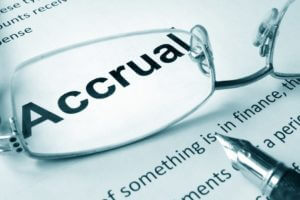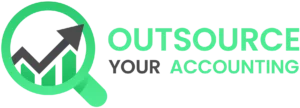Companies that have annual sales amounting to less than $5 million will have to decide on which accounting method to use. Businesses earning less than that will have the option to use the cash method while all others are required by the IRS to use accrual accounting. One caveat to this rule is for those retail stores with more than $1 million gross sales will need to track their inventory using the accrual method. Small business owners not using a CPA will often turn to accounting software to handle their finances but will still need to choose whether or not to use accrual accounting.
Choosing an Accounting Method
 The main difference between the two accounting methods is how a businesses profit is shown which is super important when filing income taxes. The amount of profit earned can at times differ significantly between accrual and cash accounting which can also impact other aspects of the business. Picking an accounting method solely based on how income taxes will be affected can lead to a confusing financial situation for the company.
The main difference between the two accounting methods is how a businesses profit is shown which is super important when filing income taxes. The amount of profit earned can at times differ significantly between accrual and cash accounting which can also impact other aspects of the business. Picking an accounting method solely based on how income taxes will be affected can lead to a confusing financial situation for the company.
One major drawbacks of using the cash method is the possibility of misunderstanding the businesses true financial position. Cash coming in or cash going out is not accounted for until it has literally changed hands in this scenario. Most companies use and extend credit for purchases which can show the business is doing a lot better or a lot worse than it actually is when using cash accounting. Accrual accounting provides a clearer picture of income vs debt for the company but requires cash flow statements to show the amount of true cash on hand. When using the accrual method revenues are recorded when they are earned and expenses are recorded when they are incurred.
Pros Of Accrual Accounting
- Realize True Profit. Accrual is the most popular accounting method because it delivers a more accurate representation of actual profit compared to cash. Revenue and expenses are calculated when they are realized and based on the timeframe they cover. Paying rent upfront for an entire year will have that expense spread out over 12 months rather than showing the entire amount as a single expense. The same occurs when a customer purchases a year long subscription. Taking into account the real relationship between expenses and revenue is a big advantage with accrual accounting.
- Easy Forecasting. Future expenses and revenues are taken into account with accrual which makes for simple business planning. Creating budgets from these predictable sales and expenses allows companies to be the most efficient when it comes to proper staffing and maintaining a sufficient inventory of goods. Staying ahead of future business financials is a key benefit with accrual accounting.
- Tax Expenses. Since expenses are accounted for once they are realized accruals give companies the ability to deduct some expenses on tax returns before actually paying for them. A key tax benefit from accrual is being able to recognize depreciation of certain assets as a deduction which in return saves money on taxes.
Cons Of Accrual Accounting
- Cash Flow Uncertainties. Accrual accounting requires that transactions be recorded when they occur rather than when money is exchanged. Indicating the presence of profits before actually receiving the cash can be dangerous. This requires a lot of guesswork and estimation that could cause problems down the line if invoices do not match the actual events that occur in the future. Leaving financial statements up to a person’s judgement call will always possess a high risk of deception and fraud.
- Difficult Calculations. The rules and regulations related to accrual accounting seem to be endless. Nobody will argue the fact that the cash method is a lot easier when managing a businesses finances. If calculations are done incorrectly it could lead to inaccurate revenue and expense numbers leading to overspending and losing profit. Accrual accounting requires intense bookkeeping and more time to complete correctly.
Many small businesses often begin operating under the cash accounting model and eventually shift to the accrual method as the company grows. As a business starts getting more moving parts it increases the need for accurate forecasting with clear projected revenues and expenses. Some small businesses may still be eligible for the cash method but it is never too early to learn the pros and cons of accrual accounting.
